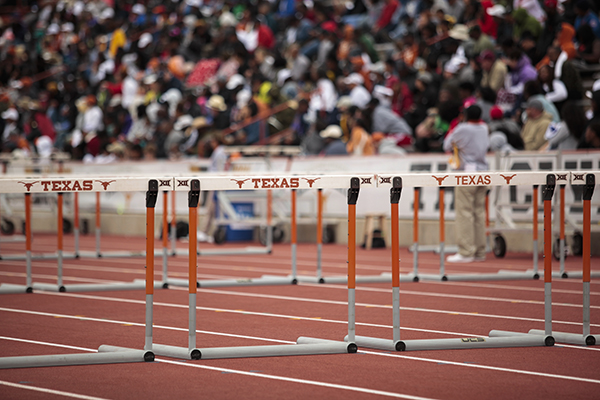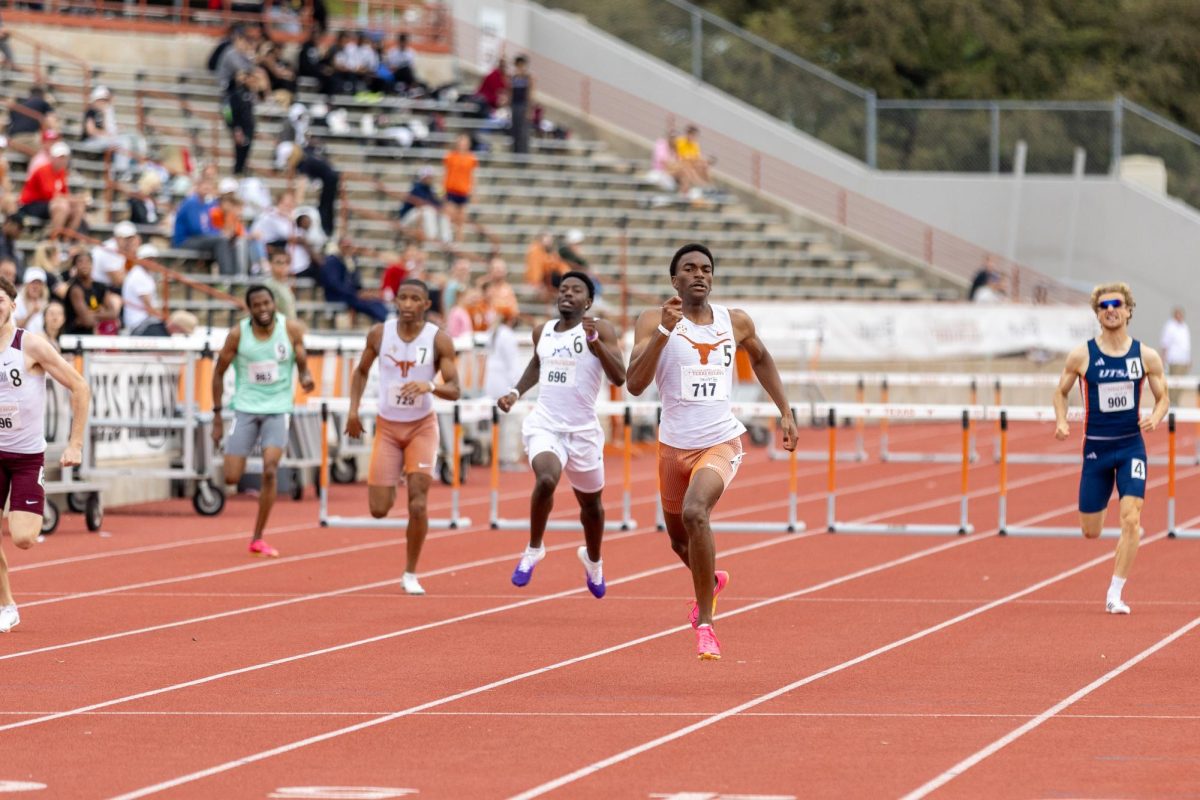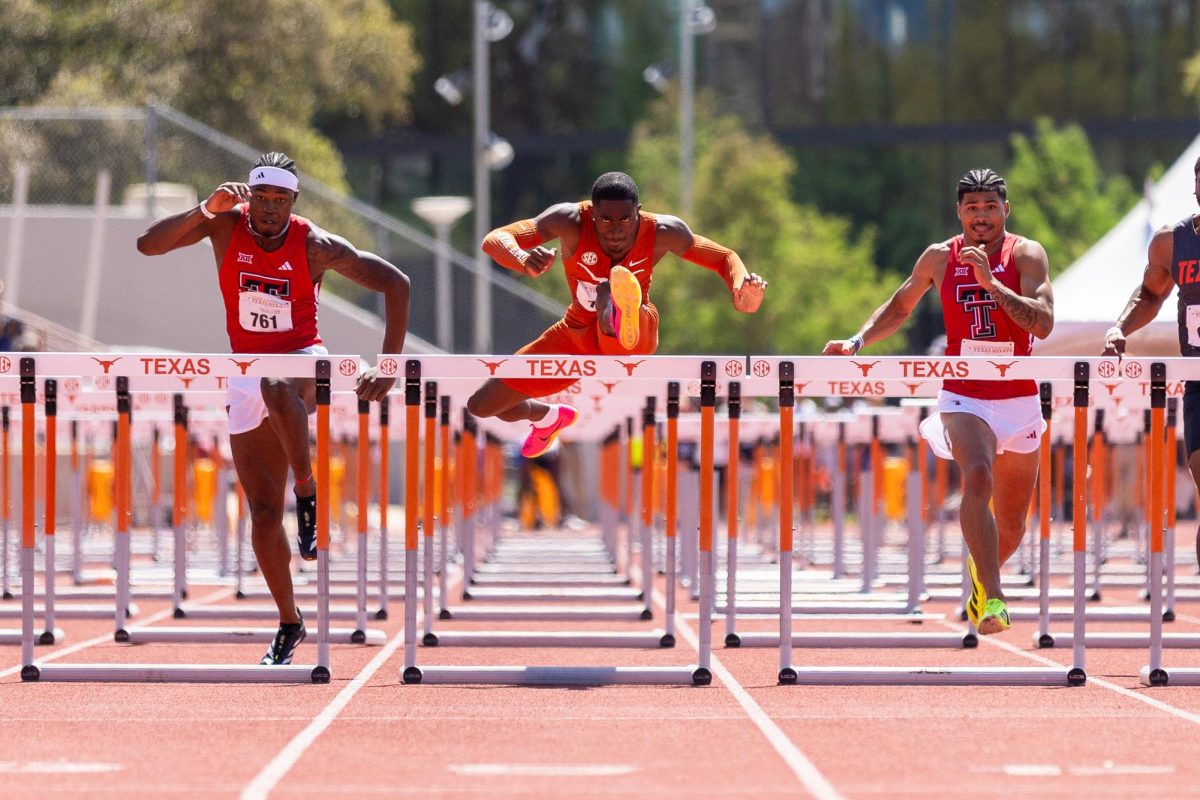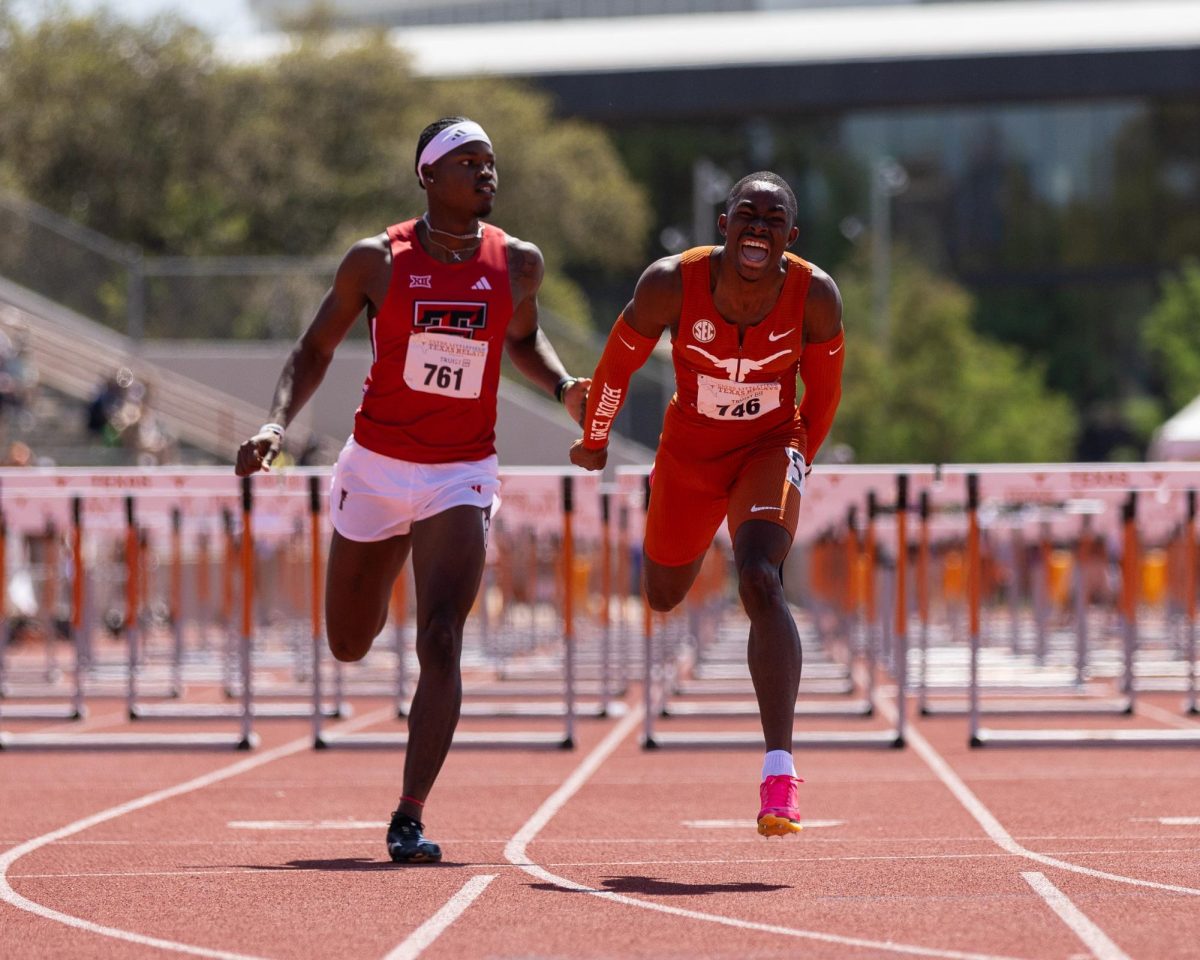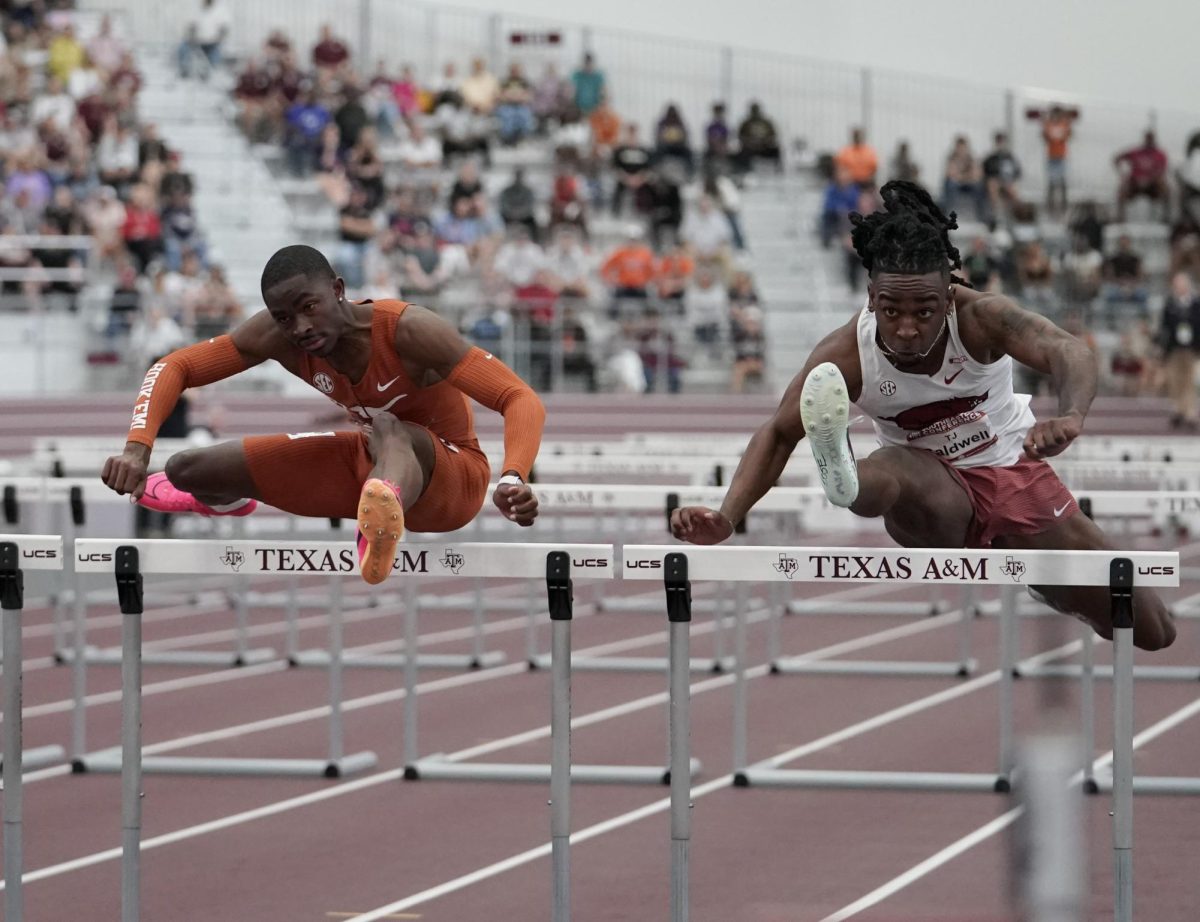The Texas Athletics program has 16 head coaches, but only two of them are Black.
Edrick Floréal, one of the two Black coaches at Texas, took over the track and field program in 2018. As the nation reckons with past and present instances of racial injustice, conversations about race on campus have increased and many Black student-athletes are looking to the University for support.
Senior sprinter Serenity Douglas feels she can relate to Floréal’s experiences because they share the same skin tone.
“I would say during this time and in college, it has been really beneficial to have somebody that can relate and understand,” Douglas said. “There is no, ‘Get me to understand,’ because he’s been there.”
Floréal has been a coach for over a decade, but he said he doesn’t think his race influences the way he coaches because it is something he is used to.
“This has just been the reality for all of my coaching life,” Floréal said. “I guess I’ve become numb to it.”
When protests erupted and student-athletes began to question UT’s alma mater, “The Eyes of Texas,” Douglas said Floréal took action right away.
“He really took initiative and talked to us,” Douglas said. “He's really been on top of it and he hasn't been ignoring the color of his skin just because he is at a predominately white institution.”
Junior sprinter Jonathan Jones is from Barbados, where the majority of the population is Black, so moving to Texas was a big change. He said having Floréal as his coach made the transition a bit smoother.
“Coming here and having a Black head coach felt very similar (to home),” Jones said. “It made me even more comfortable because it would have been a culture shock coming to UT and being around now majority white people.”
Floréal’s support doesn’t end at the finish of a race. For Jones, Floréal is like a dad to the team, and his influence goes far beyond the track.
When it comes to supporting his athletes, Floréal said it is important for him to see things from their vantage point.
“My experiences have helped me become more sympathetic and understanding, especially when our students are experiencing similar issues in their lives that I have,” Floréal said.
Jones said he’s sometimes afraid to scooter around campus at night, and he is fearful when the police pull up behind him. He said having someone he can be brutally honest with about the struggles he faces as a Black man increases the trust he has in Floréal.
“The fact that again, he's Black, reassures me that I can trust what he's saying because to me. There's some sense of credibility,” Jones said. “He's not just making it up to make me feel better. He's been there.”
Floréal said he tries not to let his skin tone affect the way he acts as a model for his athletes.
“I do believe connecting with the student-athletes and building those relationships is an essential part of being a leader,” Floréal said.
Douglas said Floréal’s openness about his own experiences and identity as a Black man has helped her during her time at Texas.
“He has shared his Black experience with us, and he has a lot of wisdom in that aspect,” Douglas said. “Because of that, it definitely helps trying to navigate giving advice about coaching and about being at a predominantly white institution.”

